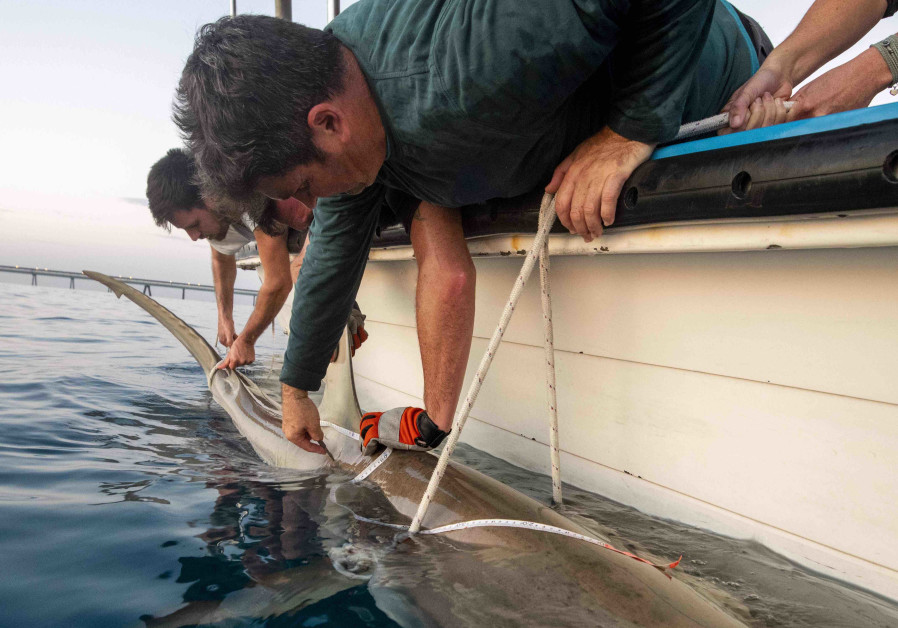University of Haifa researcher Dr. Aviad Scheinen has been named by National Geographic as one of the 15 Emerging Explorers of 2021, changing the world "one idea at a time."
Scheinen is the head of the Marine Apex Predator Lab at the university's Morris Kahn Marine Research Station. In this capacity, he has for decades been one of Israel's leading researchers on sharks, rays and coastal dolphins.
He made waves in his recent long-term project, the first of its kind, that examined the behavior of coastal dolphins, and also made a significant splash by discovering gray whales and false killer whales in the eastern Mediterranean. Scheinen is also a co-founder of the nonprofit Delphis organization and led the establishment of the Dolphin and Sea Center. an Israeli conservationist institution.

The reason that these sharks gather in such significant numbers appears to be because Israel is a haven for them and Scheinen has suggested that this is due to local legislation that protects sharks.
Scheinen is the second Israeli to be named a National Geographic Emerging Explorer, following fellow-University of Haifa scholar Dr. Beverly Goodman, who studied human-nature interactions on the coastline.
“Prof. Scheinen’s work is not only a point of pride for the university, but for Israel,” University of Haifa president Prof. Ron Robin said in a statement.
“His research spotlights how unique and ecologically robust the Mediterranean is, and seeing his work recognized in such a global forum is incredibly gratifying. Together with Dr. Goodman and others, the university is at the forefront of research bringing us closer to understanding the complex relationship between humans and our oceans.”
“This is a very significant milestone for me,” Scheinen said.“After 20 years of intensive research at sea, this major demonstration of international recognition is an exciting and empowering opportunity which will provide the university access to the most impressive minds in the field.”
While Scheinen's contributions have been significant, he is not the only researcher from the University of Haifa currently engaged in groundbreaking marine biology research. His colleague, Prof. Dan Tchernov, of the University of Haifa’s Leon H. Charney School of Marine Sciences and scientific director of the Morris Kahn Marine Research Station, is taking part in a major multi-institutional effort to study sperm whales and find out whether they communicate using language.
